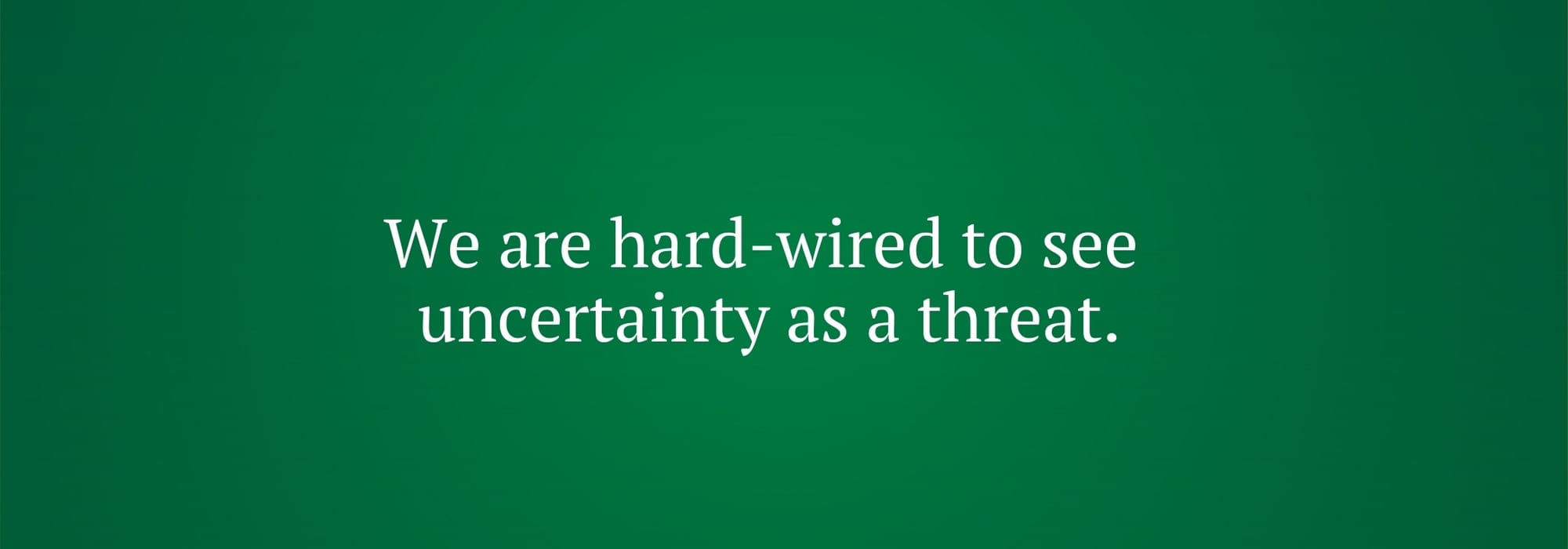Going through life transitions can be daunting, so as we step into unfamiliar territory, we often rush to reach the other side. But what if pausing rather than pushing through could actually make reaching a new life stage easier?
I have spent the lead up to every life transition feeling anxious. These can be big changes like a house move, a career change, my children’s journey from primary to secondary school, or even buying a new car. But the smaller changes also fluster me. I think of a transition as something I need to push through – and fast. I spend more time looking backwards, and sometimes mourning the status-quo that is about to alter, than I do thinking about what the future will look like.
We are hard-wired to see uncertainty as a threat, explains Dr Tanmeet Sethi. An integrative physician, TEDx speaker, and author, she explains that transitions always have an element of the unknown. You are stepping from an experience you have lived – and therefore know – to something new. “This actually puts our brain in a threat mode, because we like to know what’s around the corner. Anytime we don’t, we are more vigilant and more on edge,” Dr Sethi says.

With a life-changing transition, this means we can be on high alert for months, which has implications for our health. It’s only when we can clearly see the path ahead, and recognise that it isn’t fraught with difficulty, that we will step down from this state of alert.
Dr Sethi argues that we need to change how we view uncertainty to gain more than momentary respite before we face another upheaval, and offers guidance on how to do it: “If you can come to a place where you see uncertainty as not a threat, but as part of life – not as the exception, but instead as the default – then we start to feel safer through a time of uncertainty. And that feeling of safety settles our nervous system.”
Dr Sethi speaks about the transition of her son leaving to go to college in these terms. It is a natural progression, and though it brings changes, in physical proximity for a start, she doesn’t fear it.
Dr Avanti Kumar-Singh concedes that this is made trickier by the speed at which we live, and the constant flux in our interactions. Both in her former role as an ER doctor and now as an Ayurveda practitioner, she recognises that uncertainty can be relentless. “We have things coming at us 24/7. Our nervous system literally doesn’t have a break, as there isn’t a natural break for things to calm down in our environment. We don’t run away from the lion and then the threat ends. We’re constantly scanning for the next thing, whether the next email or the next call,” she explains.
We hurry through transitions because we are uncomfortable sitting with uncertainty, and we have this ever-pressing need to push on. Dr Kumar-Singh says: “We live in a world that prizes productivity and achievement above all else. We rush through transitions because we want to move on to the next thing, as we have a list of a thousand things we need to do.” In doing this, we often just rush straight into another transitional moment.
Dr Kumar-Singh had a journey through cancer treatment last year, and remembers doing just this. “From September to December, post-treatment, I was in such a rush to just get back to life that I was not allowing myself to have that pause.”
She describes how she jumped right back into work and pushed on with finishing her second book. “It was a time when a lot of emotions were coming up, and there was a lot of fear and uncertainty,” Dr Kumar-Singh shares. As the end of the year neared, she realised she had pushed through a transition. “I had this awareness that I was just doing the same thing that I used to do before.”
We can consciously choose to slow down or opt out to allow time to calm down. An incentive is the reframing of transitions as ‘liminal spaces’. Dr Sethi describes them as a “space between what was and what is yet to be”. She sees transitions now as opportunities to pause and reflect. It takes practice, she admits. “I don’t think this is something that you figure out. I think it’s something that you live into. The more you live into it, I think the more easily you notice these opportunities,” Dr Sethi says, adding that it is actually “a privilege to pause”.
Dr Kumar-Singh decided to visit India with her sister at the end of her treatment, and, afterwards, had the dawning realisation that she had inadvertently created one such pause for herself in doing this. “I allowed myself some space and time to be away from my family who had been very involved in my healing journey.
I really needed to be somewhere else, and just have that time to pause and think about the transition from treatment to post-treatment, to recovery, to life.”
Dr Sethi also forced herself to pause during a transition, but shares how difficult it was. After leaving a job she had held for 20 years, she felt a wave of emotions – including frustration, irritation, and impatience – as she figured out her next step. She says: “I realised that was just me being uncomfortable in a state of relative rest. I then thought that I had better stay here a little bit. I did stay there longer, and it was really uncomfortable – I admit it. I had to do that though to really understand what I wanted in that space to come. Sometimes we run through because we think we’re supposed to get to the next thing, because that’s the answer. I think I would have missed the answer for myself if I had done that.”
Dr Tanmeet Sethi shares her top tips:
1. Pause and notice you are in a transition. This is important so that you can slow down and be in the moment, instead of pushing through.
2. Accept that nothing is permanent. All transitions are normal and part of life. See this moment as a part of life to live, instead of one to end quickly.
3. Make an intention for this transition. What is it you want to learn or get out of this time?
4. Create any rituals you can, small or large, to ground yourself in something predictable as you navigate uncertainty.
5. Harness the power of community. Ask for support and guidance. None of us are meant to go through transitions alone.
Transitions are an opportunity to pause before we go on, to take stock of what has gone before, and think about the path ahead. It may take a conscious decision to slow down, and it will mean reframing transitional moments as not only natural, but also valuable. Whether arriving home from work or changing career, these moments should be acknowledged before we rush onwards.
Dr Tanmeet Sethi is an integrative mental health and psychedelic medicine physician (tanmeetsethimd.com). Dr Avanti Kumar-Singh is the founder and director of ARVAS Integrated Wellness (avantikumarsingh.com).


Comments